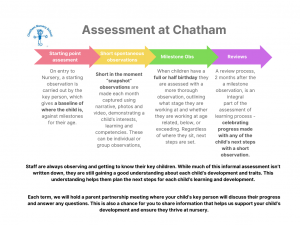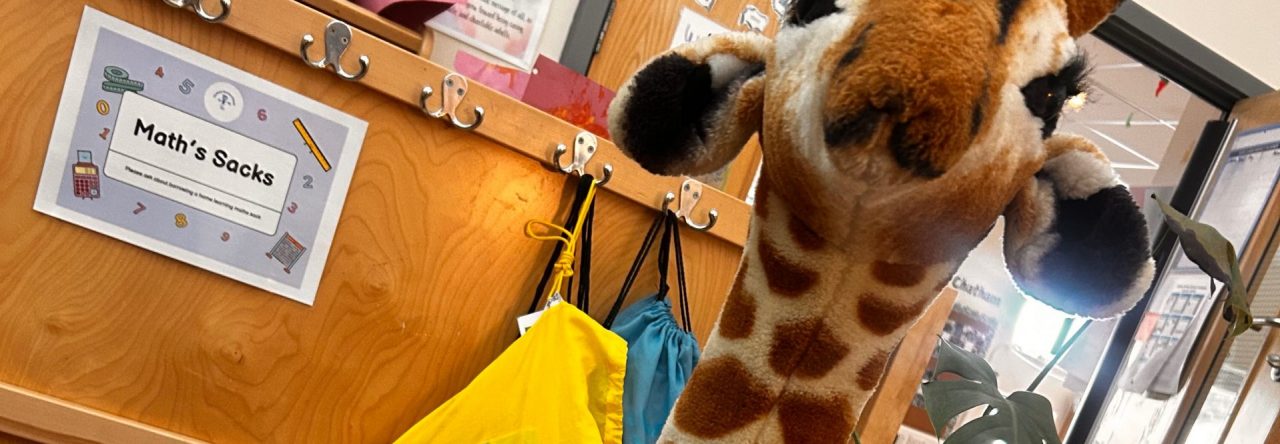At Chatham Nursery School, we are committed to ensuring that every child achieves their full potential. As part of this commitment, we assess the impact of our learning intentions each term to identify any gaps in progress and provide timely, targeted support for both children and their families.
Unique Child
We recognise that each child develops at their own pace, and not all will follow a typical progression. However, we firmly believe that every child is capable of making meaningful progress, and we focus on nurturing their individual strengths and interests.
Relationships
Our priority is always quality time with children. We ensure that assessment practices do not detract from the rich, meaningful interactions that support development. Guided by the Birth to Five Matters framework and our long-term curriculum maps, our approach is thoughtful, responsive, and rooted in the belief that children learn best through play, relationships, and purposeful experiences.
Parent Partnership
At Chatham Nursery, we use Tapestry – an online learning journal – to document and share children’s experiences and learning with families. Using iPads, staff capture meaningful moments that reflect each child’s development and progress, helping families stay connected to their child’s journey at nursery.
While Tapestry is a valuable tool for communication and reflection, we are intentional about keeping iPad use to a minimum. Our priority is always to be present, engaged, and hands-on with the children, focusing on play, interaction, and direct support. We believe that meaningful relationships and real-time engagement are at the heart of effective early years practice.
Statutory Progress Check at Age Two
Between the ages of two and three, the team in the two year old provision (Little Acorns) will complete a statutory progress check, providing parents or carers with a short written summary of their child’s development in the three prime areas.

Identifying barriers to learning
Staff are vigilant and skilled in identifying barriers to learning from the very first day. This begins during the home visit and continues throughout the settling-in period. Any concerns are promptly shared with you, the parent, and we work together to develop a supportive plan. This may involve input from our SENDCO, referrals to external agencies, or the implementation of targeted interventions.

